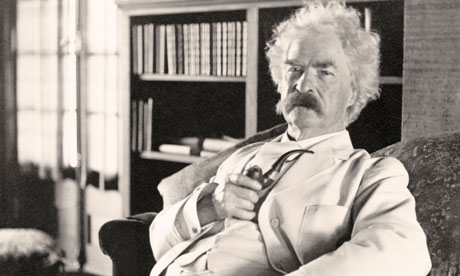Another great article from The Guardian! People that have been declared dead before their time- and no, it’s not depressing. In fact it makes a very good read. Remeber you can check the meaning and pronunciation of any word with a double click:
BURIED ALIVE- THE PREMATURE OBITUARIES.
While you read, look for the words, or phrases, which mean:
1. careless, irresponsible =
2. reluctantly =
3. sourness, rudeness =
4. a youngster, a lad =
5. a hypothetical discussion =
6. mistakes, errors =
7. penniless, with no money =

Obituaries departments have to be careful with their trigger fingers. They all carry large numbers of stock obits – invariably called “the morgue” (or, in less caring departments, “the slab”) – awaiting the moment when the subject dies. Once in a while they get a false report of a death and press the button. With calamitous consequences.
Reuters news agency suffered just such a calamity overnight on Thursday when it ran an obituary of financier George Soros. “George Soros, who died XXX at age XXX, was a predatory and hugely successful financier and investor, who argued paradoxically for years against the same sort of free-wheeling capitalism that made him billions,” it declared on its website. Those Xs are probably the giveaway that there was a degree of uncertainty about the death.
Reuters described Soros as “an enigma, wrapped in intellect, contradiction and money,” before hastily withdrawing its obituary when it discovered he was still enigmatically breathing. It then put out a brief, through-gritted-teeth correction: “Reuters erroneously published an advance obituary of financier and philanthropist George Soros. A spokesman for Soros said that the New York-based financier is alive and well. Reuters regrets the error.”

The Soros fiasco joins a proud tradition of premature obits. It was an occupational hazard for Mark Twain, who was twice reported dead. The first instance led to his immortal line: “The rumours of my death have been greatly exaggerated.” (His real words are reckoned to have been the less euphonious “The report of my death was an exaggeration”, but we are taking our cue from Reuters and printing the legend.) On the second occasion, in 1907, he was reported in the New York Times to have been lost at sea, but turned up a few days later and wrote a merry article celebrating his survival. He died definitively three years later.
The tartness of the remarks about Soros are as nothing compared with those directed at Swedish-born arms manufacturer Alfred Nobel, whose obituaries were erroneously published in 1888 when he was confused with his late brother Ludwig. “The merchant of death is dead,” thundered one French paper, which said that Nobel “became rich by finding ways to kill more people faster than ever before”.
Wisden, whose obituaries are usually a delight, had the misfortune to mark the passing of the West Indian batsman Edward “Barto” Bartlett in 1934. He did not in fact die until 1976, making the most of the second life he had been granted. This, though, is not the greatest lapse of time between an exaggerated report of death and the reality. The Times mourned the death of writer Robert Graves at the Battle of the Somme in 1916, but he recovered and survived until 1985.
By a nice coincidence, in the year of Graves’ death (real rather than reported), the Times again erred when it published an obituary of BBC sports commentator Rex Alston, then a stripling of 84. The obits editor had asked for the piece to be updated, but it was published accidentally. An unpleasant surprise for Alston, who had spent the night in Westminster hospital, having collapsed at dinner the previous evening. Happily he recovered and, indeed, remarried the following year – the only person to have his death and his marriage announced in the Times in that order.

The longest premature obituary is probably the 17-page encomium the Bloomberg news service accorded Apple’s Steve Jobs in 2008 – three years before his death. Once again, it was a case of an obit that had been updated being accidentally distributed. It is said to have sent a shiver through Wall Street, though it would have been pretty dumb not to guess something was up from the intro: “Steve Jobs, who helped make personal computers as easy to use as telephones, changed the way animated films are made, persuaded consumers to tune into digital music and refashioned the mobile phone, has XXXX. He was TK.”
In its retraction, Bloomberg couldn’t even bring itself to mention Jobs’ name. “An incomplete story referencing Apple Inc was inadvertently published by Bloomberg News at 4.27pm New York time today. The item was never meant for publication and has been retracted.” “Incomplete” seems a curious word for a premature obit. The actuality of death is a mighty big missing fact.
In 2003 the accident-prone CNN managed to make all its stock obits available on its website. Many were only sketches and used templates taken from other well-known figures. Whether this saved CNN from embarrassment or added to it is a moot point. Dick Cheney’s obit used the Queen Mother’s template and described him as “the UK’s favourite grandmother”; Pope John Paul II borrowed from the Queen and made much of his “love of racing”; Fidel Castro’s drew on Ronald Reagan’s and offered a revisionist view of him as “lifeguard, athlete, movie star”.
George HW Bush has been periodically declared dead by various outlets, including German news magazine Der Spiegel, which last December ran an obituary when the former president was in intensive care. It described him as a “colourless politician” whose image only improved when his son became president. The magazine later apologised for a “technical error”.
Nineteenth- and early 20th-century newspapers were highly susceptible to false reports of death, especially, as the Twain examples suggest, in the US. Joshua Chamberlain, who went on to be the governor of Maine, was reported dead after the siege of Petersburg in the American civil war, but recovered from his wounds, was shown the obit when he was well enough and was said to have enjoyed it greatly.
In his novel Brazzaville Beach, William Boyd says: “The last thing we learn about ourselves is our effect,” but subjects of premature obituaries do get an inkling of how the world saw them. Chamberlain seems to have been delighted by the sneak preview, but whether Soros and the colourless Bush feel better for having been granted that privilege is doubtful.

The internet has produced similarities with 19th-century newspapers, in the sense that intense competition between media and the dodgy echo chamber that is the internet means all sorts of false reports get posted. Poor Zsa Zsa Gabor, who is 96 and in very poor health, has frequently been obituarised on websites and even on Wikipedia. In the age of social media and 24-hour news, Soros-style incidents are likely to proliferate.
But the old-style newspaper cock-ups are still the best. In 1999 the Daily Telegraph published an obit of folk musician Dave Swarbrick, who was in hospital in the Midlands with a chest infection. “He read the obituary,” reported his wife Jill, “and didn’t quarrel with any of the spellings or the facts – apart from the obvious one.” Later, back on the festival circuit, fans would ask him to sign copies of the obit, which he was always pleased to do. “It’s not the first time I’ve died in Coventry,” he liked to tell them.

Finally, spare a thought for Jamaican-born political campaigner and black nationalist Marcus Garvey. He suffered a stroke in January 1940 at the age of 52, but seemed to have recovered by May, when a copy of the Chicago Defender arrived at his house in Hammersmith. “Marcus Garvey Dies in London,” screamed the banner headline, and underneath was an obit which said Garvey had died “broke, alone and unpopular”. “He was faced with clippings of his obituary and pictures of himself with deep black borders,” said his secretary. “He collapsed in his chair, and could hardly be understood after that.” Garvey had had a second stroke and promptly died. Obits editors beware: premature send-offs can kill.
guardian.co.uk © Guardian News & Media Limited 2010
Published via the Guardian News Feed plugin for WordPress.
Idea for writing:
Write your own Obituary. Describe your life and lifestyle, personality and quirks, and explain why the world is a sadder place without you (but try to be honest!).
Questions:
Match these people (A-H) with the statements below (1-8) – There is one name left over:
A. George Soros
B. Mark Twain
C. Alfred Nobel
D. Edward Bartlett
E. Robert Graves
F. Steve Jobs
G. Joshua Chamberlain
H. Dave Swarbrick
Who….
1. …was pleasantly surprised when he read his own obituary?
2. …was badly affected by the publication of his obituary?
3. …outlived his ‘death’ by nearly 70 years?
4. …was accused of hypocrisy in his obituary?
5. …was declared dead due to a newspaper’s administrative error?
6. …had been a cricket player?
7. …was mistaken for a close relative?
8. …likes to make jokes about his death?
Ideas for writing? What would you write in your own obituary? Personality, life and lifestyle, contributions to society…. Try to be honest!
Do you want answers in the post? Name and email here. Leave your name and email to get the answers. You will get just one email each month with information and links, as well as some free e-books to hep you improve your English. Click here for more information
[email-download download_id=”437″ contact_form_id=”1026″]And your comments, queries, suggestions- write them in the comments box below:








Leave a Reply